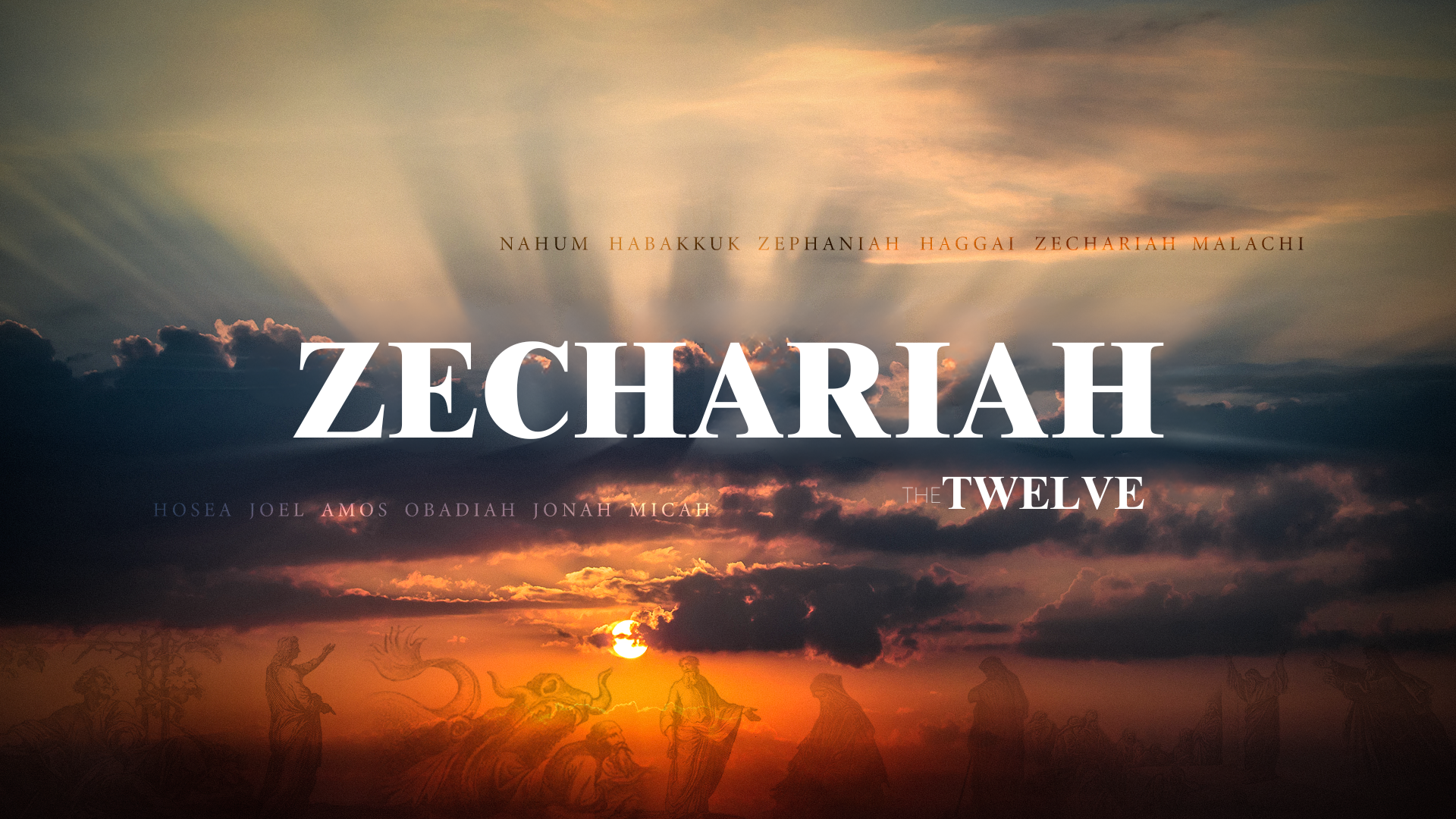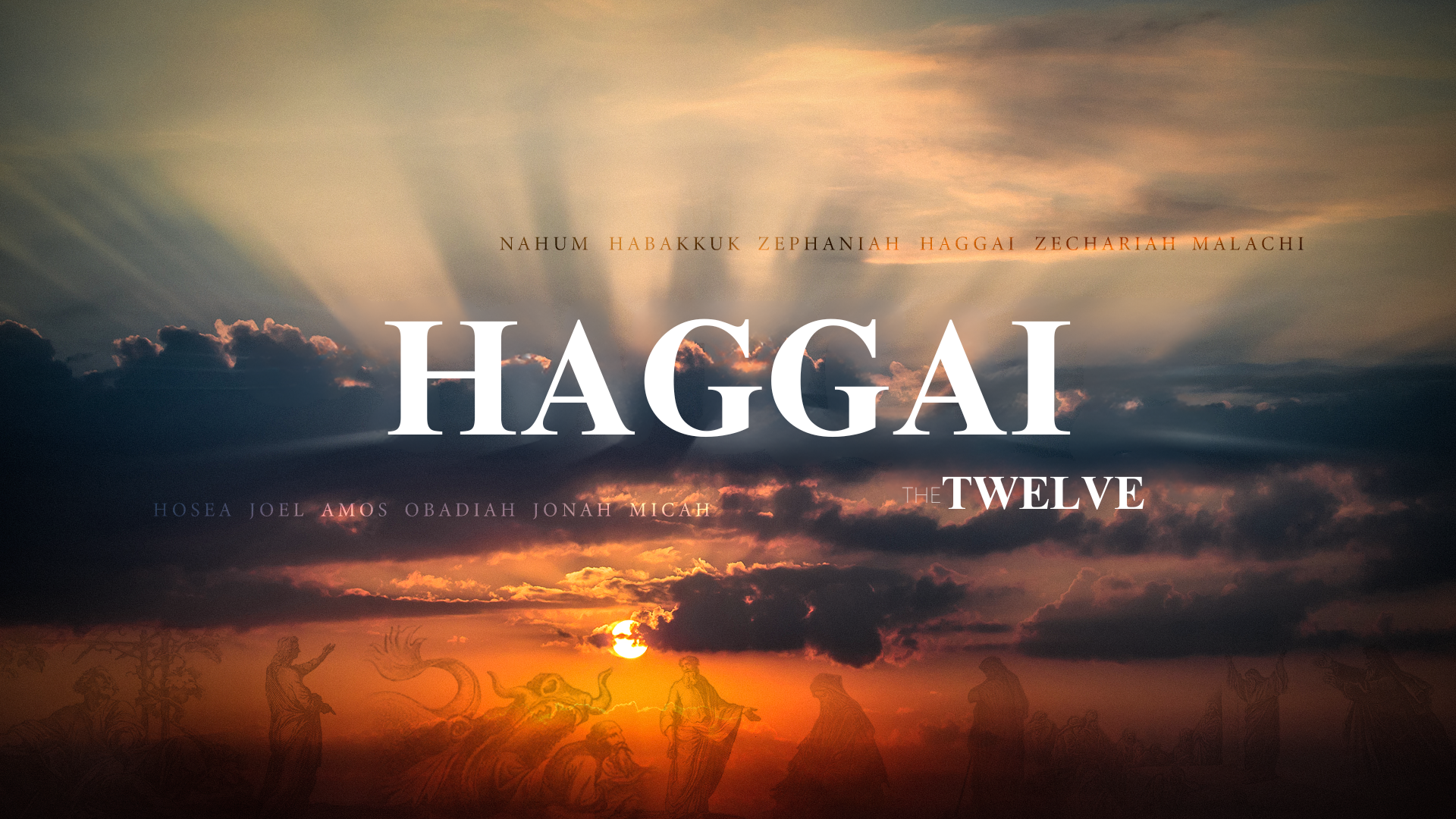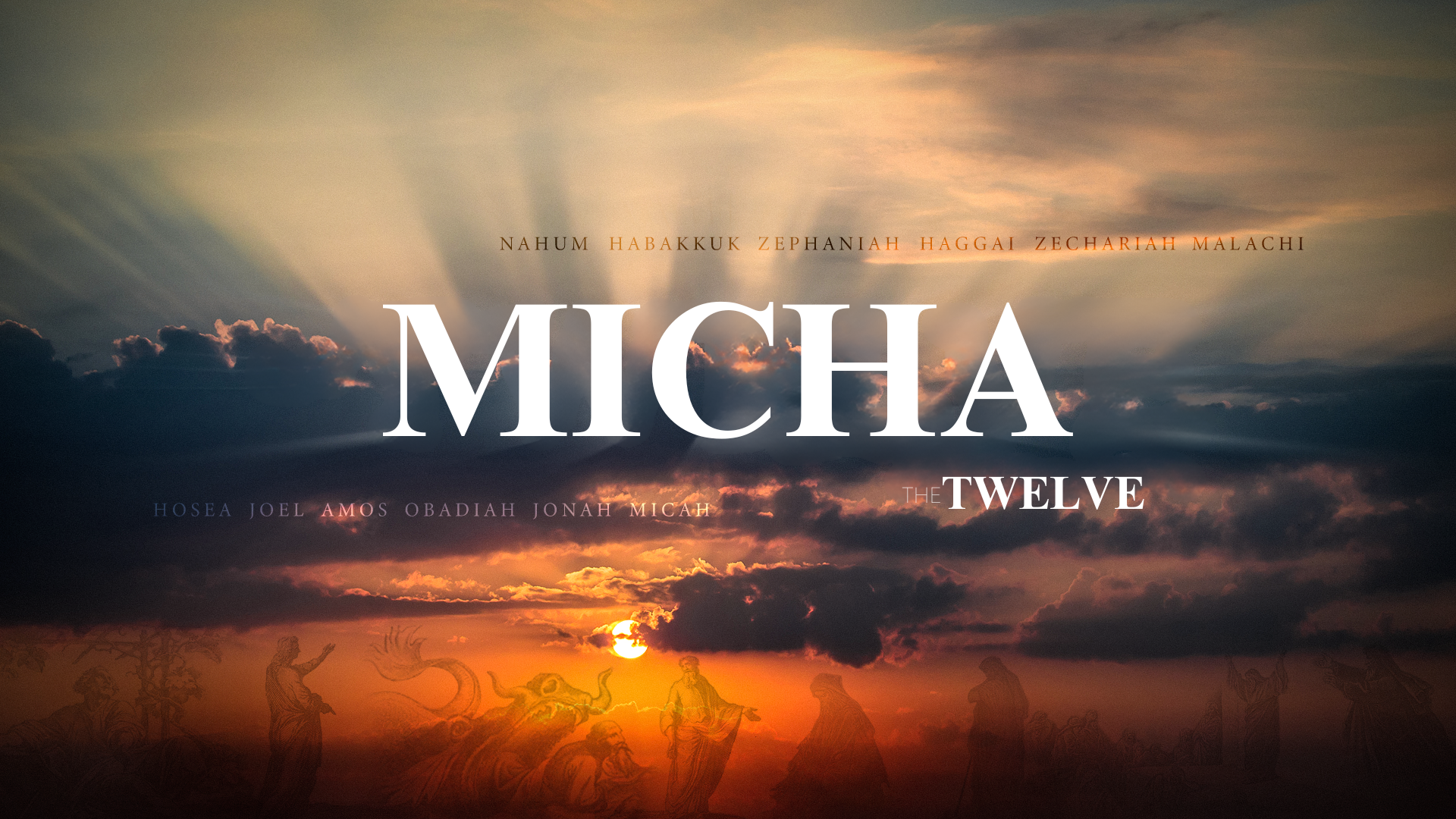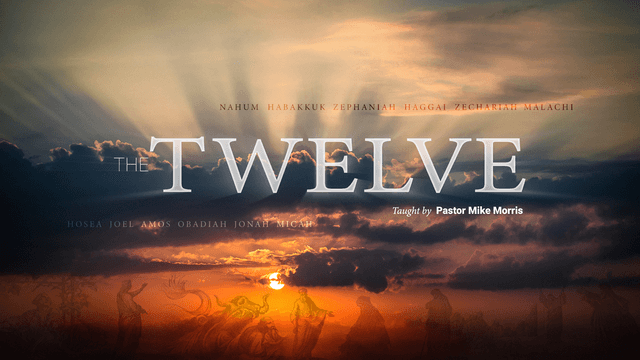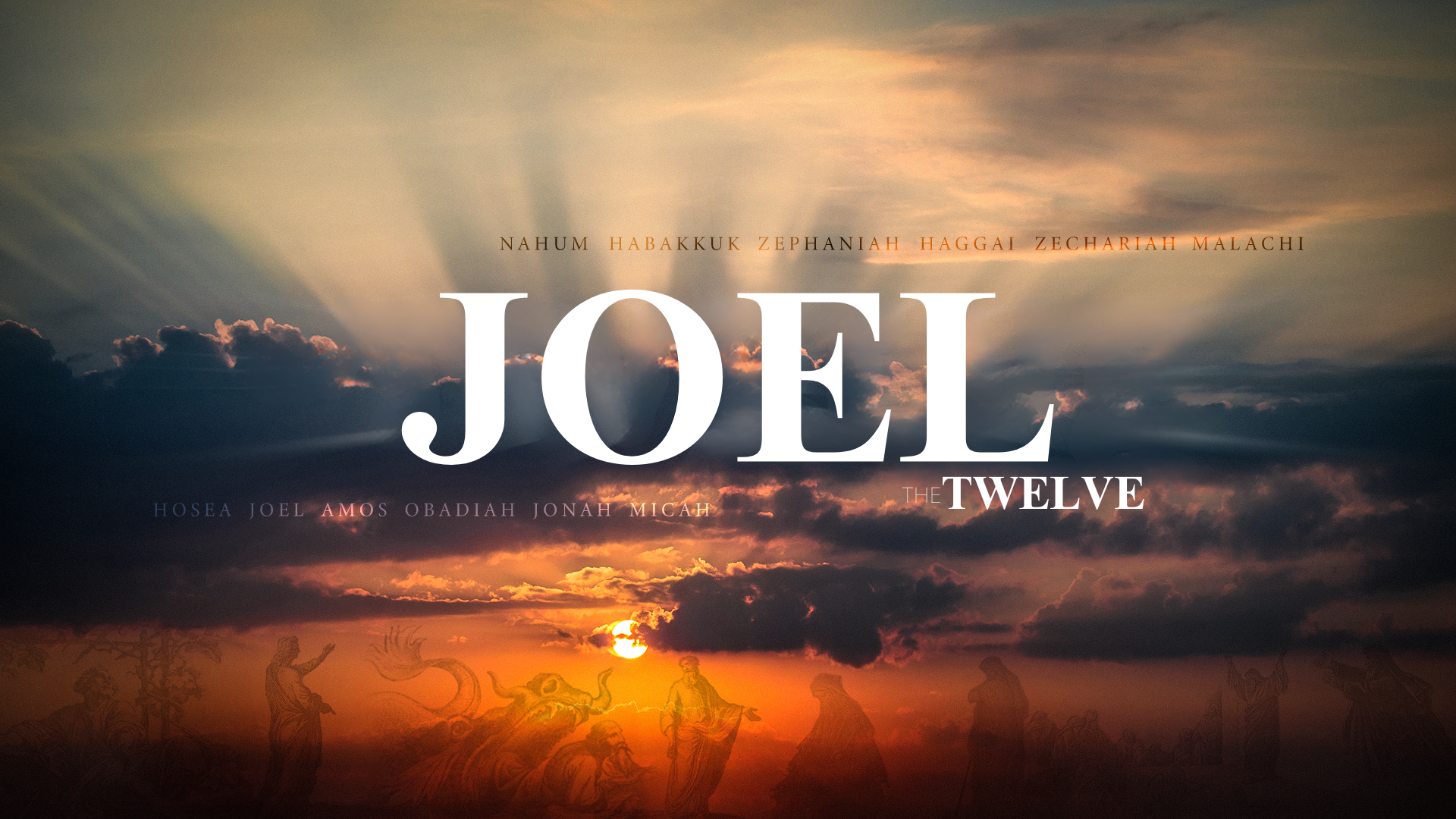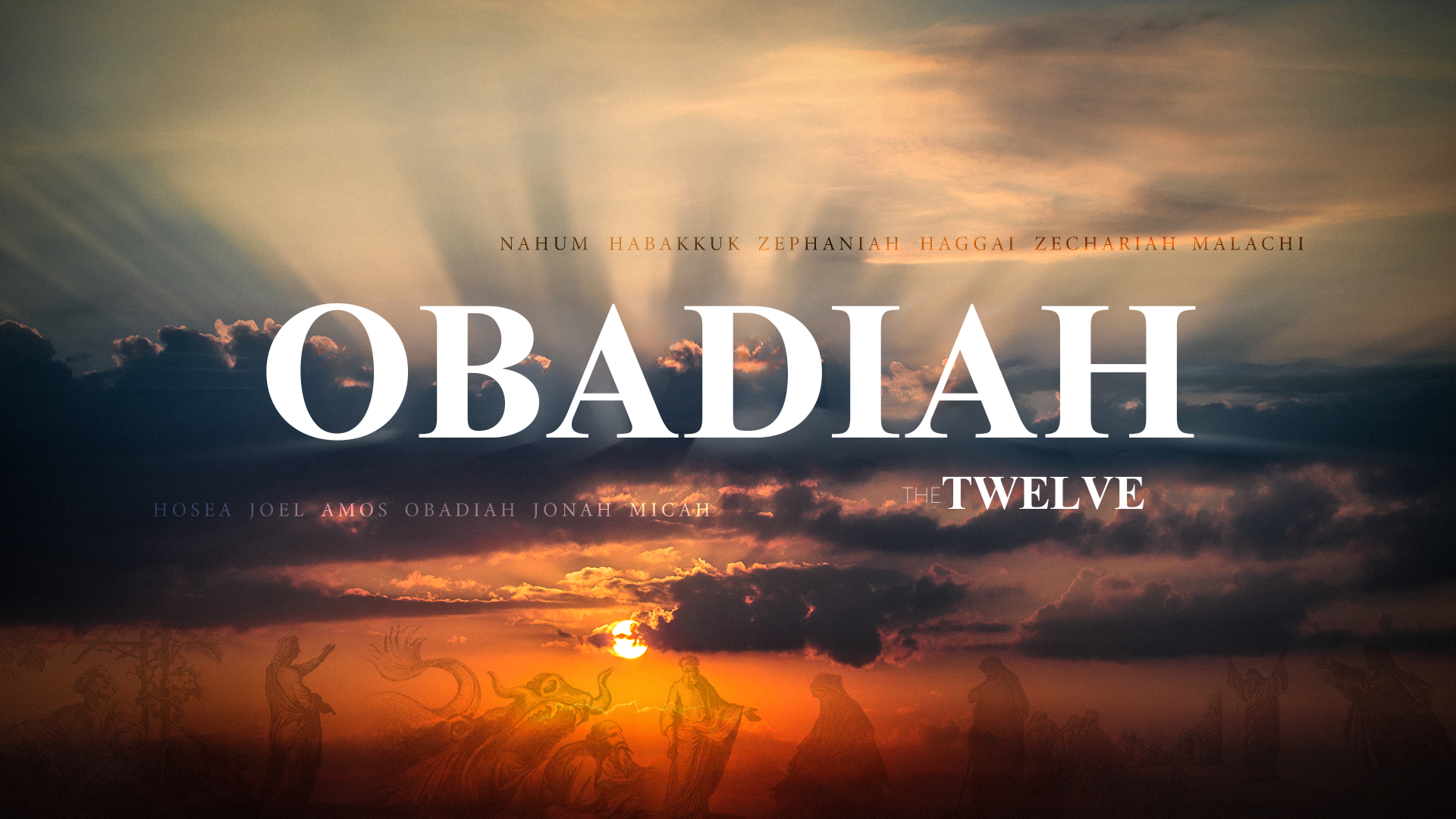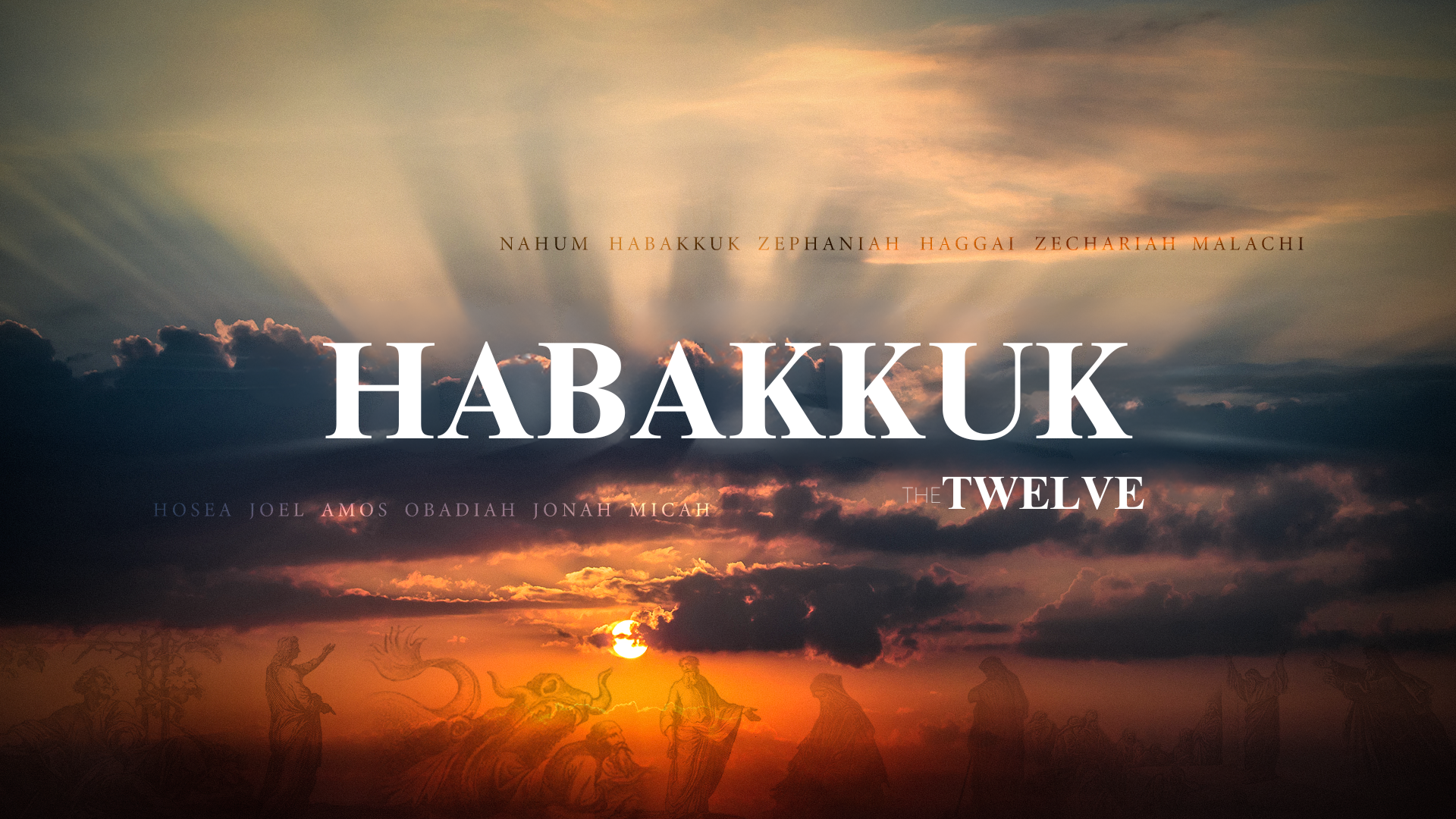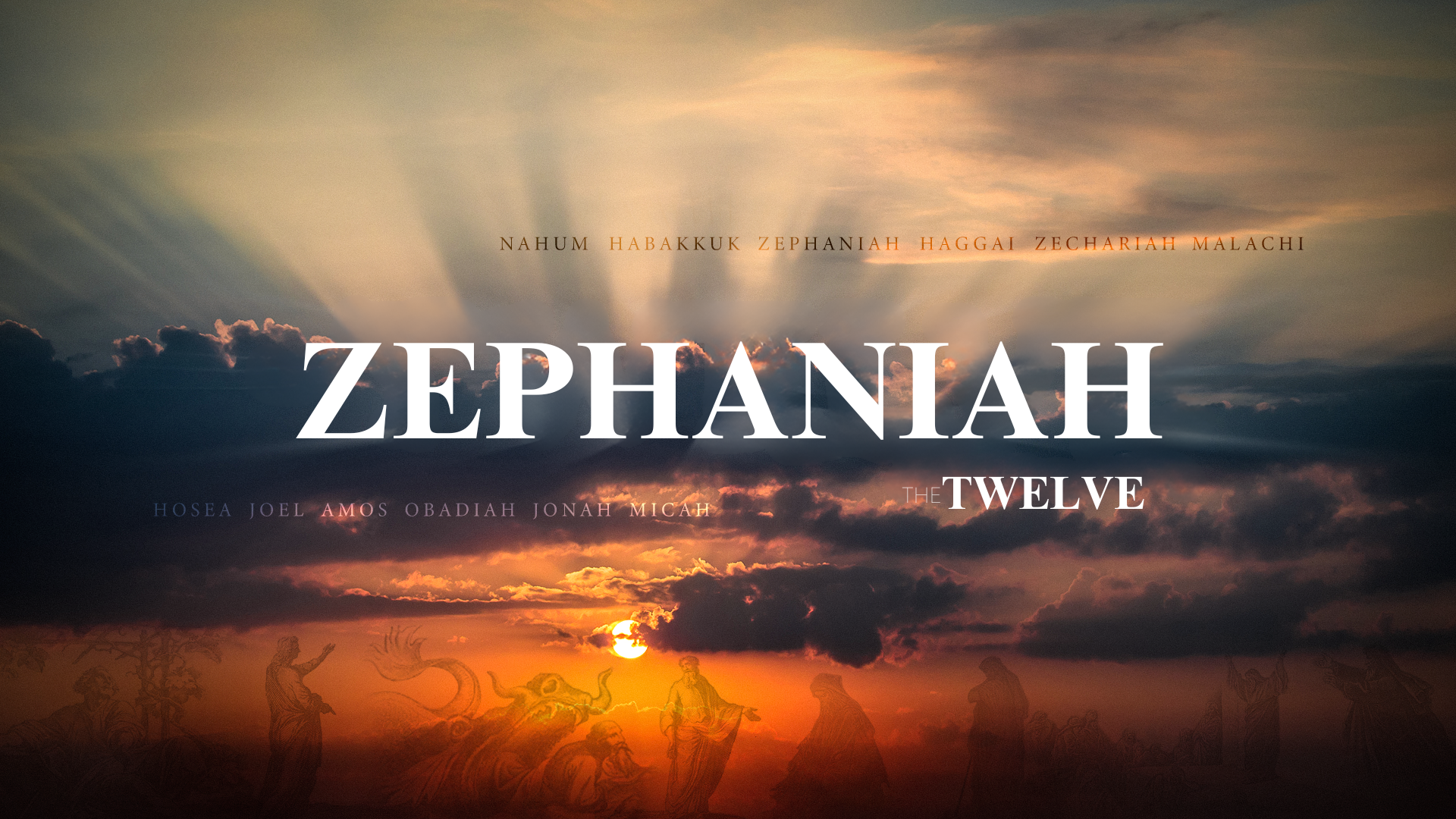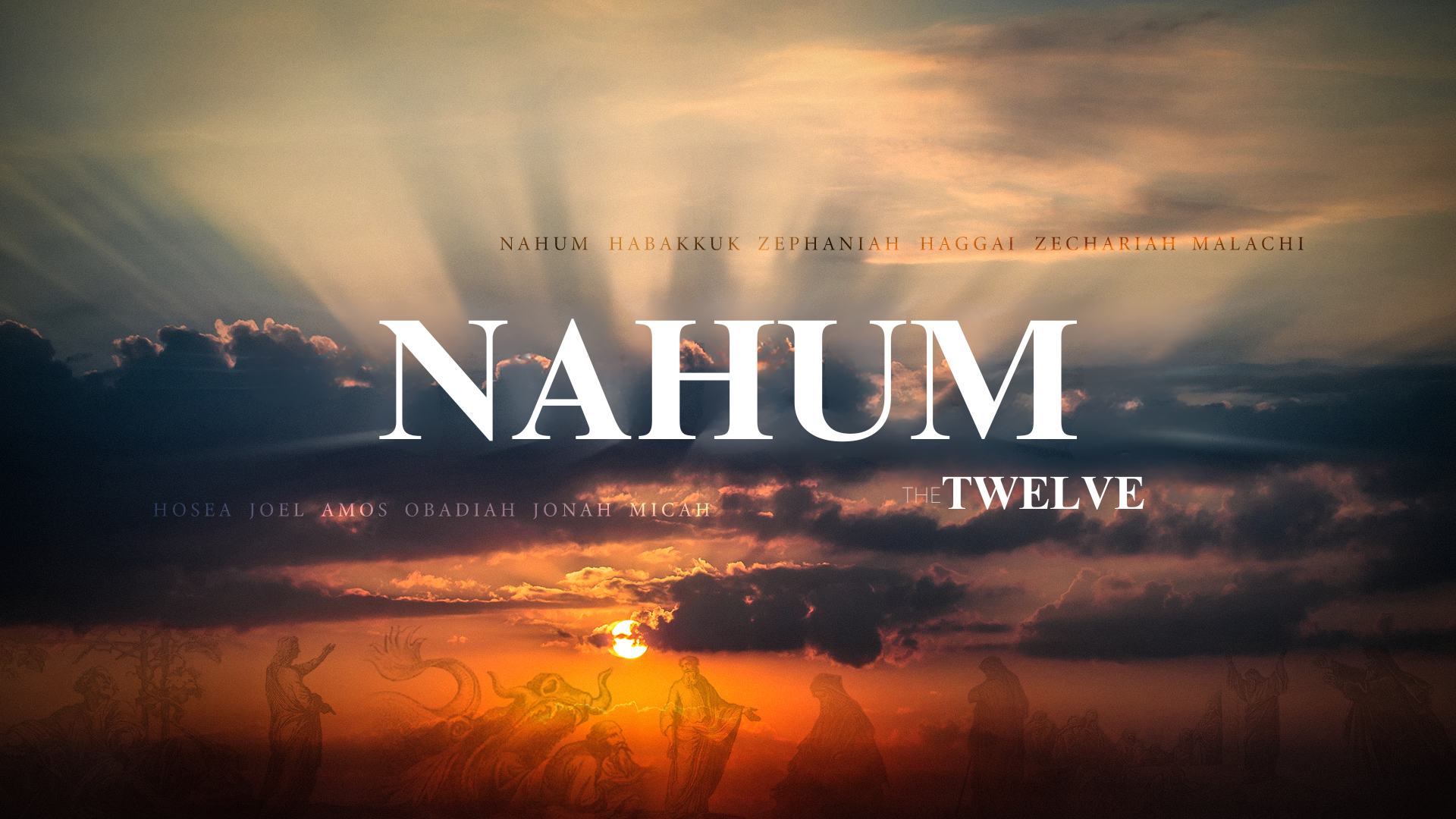MANUSCRIPT
Good evening, Verse by Verse family! I’m Mike Morris. Welcome back to our study of the Twelve.
Tonight, we continue our study of the prophecy of Zechariah. Last time, we reviewed several introductory features of the book, and we took a close look at the first six verses of chapter one, which serve as a prologue for the entire book. The first truth Zechariah impresses on the Judeans who had returned from Babylon to their land is the necessity of repentance. God Himself urged the people to return to Him and assured them that when they did, He would return to them as well. In verse six, we read of the repentance of the people, which sets the stage for the remainder of the book.
Let’s read through the text.
You’ll recall that the central theme of the book is this a clear link to the name of the author, which means “Yahweh remembers”.
Tonight, we begin the first section of the book, the visions of Zechariah. These eight visions, beginning in 1.7 and ending with 6.8, are given to the prophet on the 24th day of the 11th month of 520 BC, the same year that marked the beginning of the prophetic ministry of both Haggai and Zechariah. from the text it’s clear that all eight visions came to the mind and spirit, not the physical eyes, of the prophet in a single night, for what Zechariah describes is being revealed visually.
Another important feature of the visions is an emphasis on angels. Two are particularly important. The first is the “angel of Yahweh” or the “angel of the LORD”. The second is “the angel who talked with me,” which is mentioned eleven times. We’ll meet both tonight.
One key point: this is a different type or genre of Scripture. With this prophetic book, most of our attention will focus on understanding the meaning of the text, especially regarding the near- to mid-term fulfillment related to Israel and the long-term fulfillment in the end of days. I will certainly highlight applicational truths when we find them, but the main effort will be directed toward discerning the meaning of the prophetic vision.
Let’s enter the text!
Set the Scene: Zechariah 1.7-8
Zechariah provides the date, names himself as the prophet, along with his lineage, and begins with a description of the scene of the first vision, including the key symbolic elements.
7 On the twenty-fourth day of the eleventh month, which is the month of Shebat, in the second year of Darius, the word of the Lord came to the prophet Zechariah, the son of Berechiah, son of Iddo, saying, 8 “I saw in the night, and behold, a man riding on a red horse! He was standing among the myrtle trees in the glen, and behind him were red, sorrel, and white horses.
Note the date of these eight visions is exactly five months from the beginning of the reconstruction of the Temple and two months from the laying of the foundation, and from Haggai’s two prophecies also on that same day, when God promised in Haggai 2.19b, But from this day on I will bless you.”. Now, exactly two months later, this vision will bless and encourage the people of Judah. This close linkage reminds the people that, yes, Yahweh remembers, a reminder emphasized by the meaning of the names listed here: as we’ve said before, Zechariah means “Yahweh remembers”. Berechiah, the prophet’s father, means “Yahweh blesses,” and the name of Zechariah’s grandfather, Iddo, means “in its time”. Taken together, the names are like a prophecy in themselves. In their time, Yahweh’s blessings will come, for He remembers and does not forget His people.
But this encouragement is tempered by dating the prophecy using the Babylonian name for the eleventh month and by the reign of a pagan king, Darius the Mede, for at this time, Judah is living under the authority of the Medo-Persian Empire, and had already entered into what Jesus in Luke 21.24 calls “the times of the Gentiles”.
Now to the elements of this prophetic scene: a man riding a red horse, with other horses – some red, some white, some “speckled” “sorrel” or “bay” – are all standing in a grove of myrtle trees. Let’s look carefully.
Who is this “man” riding a red horse? The answer is in verse 11: 11 And they answered the angel of the Lord who was standing among the myrtle trees. He is, in Hebrew, Malakh Yehovah, the “angel of His face,” Jesus Christ Himself. I’ll offer just two of many other references to illuminate the phrase. In Genesis 22.10-12. 10 Then Abraham reached out his hand and took the knife to slaughter his son. 11 But the angel of the Lord called to him from heaven and said, “Abraham, Abraham!” And he said, “Here I am.” 12 He said, “Do not lay your hand on the boy or do anything to him, for now I know that you fear God, seeing you have not withheld your son, your only son, from Me.” and in Judges 2:1, we read. Now the angel of the Lord went up from Gilgal to Bochim. And he said, “I brought you up from Egypt and brought you into the land that I swore to give to your fathers. I said, ‘I will never break my covenant with you. It’s clear who this angel is. He is the Second Person of the Holy Trinity, God Himself, the Messiah of Israel, Jesus Christ, and He now appears riding a red horse. This raises the question, what do the colors mean?
Certainly, horses in the sixth century BC were state of the art in land warfare. Mounted cavalry were a potent fighting force and could quickly overwhelm soldiers on foot.
As for the colors, in Scripture, red signifies war, blood, judgment, and vengeance. In Isaiah 1.18, God describes the sins of Israel as red, worthy of judgment, but promises purity, symbolized as white: “Come now, let us reason together, says the Lord:
though your sins are like scarlet,
they shall be as white as snow;
though they are red like crimson,
they shall become like wool.
Revelation 6.3-4 continues the imagery with the second horse of the four horsemen of the Apocalypse. 3 When he opened the second seal, I heard the second living creature say, “Come!” 4 And out came another horse, bright red. Its rider was permitted to take peace from the earth, so that people should slay one another, and he was given a great sword.
Isaiah 63.1-6 and Nahum 2 also apply this symbolic meaning to the color red.
And don’t miss this: Jesus Messiah is riding a red horse. He is preparing for war.
The white horses symbolize triumph, victory, and purity as in Revelation 6.2, as the first horseman comes forth. 2 And I looked, and behold, a white horse! And its rider had a bow, and a crown was given to him, and he came out conquering, and to conquer. It is seen again as Jesus rides a white horse in Revelation 19.11-14. 11 Then I saw heaven opened, and behold, a white horse! The one sitting on it is called Faithful and True, and in righteousness he judges and makes war. 12 His eyes are like a flame of fire, and on his head are many diadems, and he has a name written that no one knows but himself. 13 He is clothed in a robe dipped in blood, and the name by which he is called is The Word of God. 14 And the armies of heaven, arrayed in fine linen, white and pure, were following him on white horses.
As for the sorrel horses, it is less clear what they mean. Likely it is some mixture of judgment and victory, as sorrel or bay horses are neither truly red nor white, but a blend of the two.
The location is a grove of myrtle trees. The location is named by the ESV as being in the “glen”; the KJV uses the word “bottom”; NASB, LSB, and NIV all use “ravine”. Commentator David Baron believes a fitting translation would be in “the deep” as the same Hebrew word (met-su-lah) is used in other passages to refer to the depths of the ocean. 11 out of 12 OT uses, it’s translated “deep” or “depths”. It would seem this location is the bottom of the Kidron Valley, which runs north and south along the eastern edge of the city of Jerusalem. As most of us know, myrtle trees are typically short, bushlike flowering trees. They are beloved in Jewish culture, and their name is the source of the feminine name, Hadassah or Esther. Their branches were used during the Feast of Booths to make shelters for the Jews during that celebration of God’s deliverance. In this vision, this grove of myrtle trees stands as a symbol for the nation of Judah and, more broadly, Israel. Hidden away from the great world powers, unnoticed, but precious to the One who stands in their midst, the Messiah of God. Psalm 34.7 applies here when it says The angel of the Lord encamps around those who fear him, and delivers them. Amen!
Now that we have a sense of the symbolic meaning of the elements of Zechariah’s vision, let’s move forward in the text.
Discern the Meaning: Zechariah 1.9-13
Now, the interpreting angel helps Zechariah understand the vision.
9 Then I said, ‘What are these, my lord?’ The angel who talked with me said to me, ‘I will show you what they are.’ 10 So the man who was standing among the myrtle trees answered, ‘These are they whom the Lord has sent to patrol the earth.’ 11 And they answered the angel of the Lord who was standing among the myrtle trees, and said, ‘We have patrolled the earth, and behold, all the earth remains at rest.’ 12 Then the angel of the Lord said, ‘O Lord of hosts, how long will you have no mercy on Jerusalem and the cities of Judah, against which you have been angry these seventy years?’ 13 And the Lord answered gracious and comforting words to the angel who talked with me.
Having viewed this scene, Zechariah asks the question we would ask:” What are these, my lord?” The interpreter angel replies that he will literally “make Zechariah to see” the meaning. He will provide Zechariah insight and wisdom to understand.
We might expect the interpreter angel to respond next, but he doesn’t. The Angel of the Lord responds instead and identifies the company of angels behind him mounted on the red, sorrel, and white horses as “those whom the Lord (Yahweh, God the Father) has sent to patrol the earth.”
Now we learn with certainty that the horses seen in v 8 indeed have riders. An angelic host at the command of the Lord of Hosts, the Angel of the Lord. They have been given a mission by Yahweh Himself, and it is to “patrol” the earth. The Hebrew word translated “patrol” means to come and go, to walk to and fro. It’s the same word used of Satan’s activity in Job 1.7, roaming about the earth. In today’s military terms, these angels were performing reconnaissance, defined as “military observation of a region to locate an enemy or learn strategic features”. Their mission objective is not to engage, but to learn the state of the earth, particularly the Gentile world powers, and that information makes up the content of their report. While lowly Israel, represented by the grove of myrtle trees, is in “the deep,” out of the way and thought to be unimportant, the angel hosts ride to see what is happening in the rest of the earth, and they find that “all the earth remains at rest”. The Hebrew words for “remain at rest” are not always peaceful and positive; in Jeremiah 48.11 and Ezekiel 16.49, these words are used as precursors of God’s judgment on nations for their self-righteous, wicked, smug prosperity, and that seems to be the sense here.
In light of this report, the Angel of the Lord speaks to the Father, 12 Then the angel of the Lord said, ‘O Lord of hosts, how long will you have no mercy on Jerusalem and the cities of Judah, against which you have been angry these seventy years?’
The Angel of the Lord, the Messiah Himself, has turned from being present with His people to being the Advocate, the Intercessor, for His people. He speaks to the Lord of Hosts and with a cry that reminds us of the psalms, calls out to God for the sake of His own, “How long will you have no mercy. ?” Jesus knew, as we do, that our God is a God of compassion and kindness.
So, based on God’s character, His mercy, and His justice, the Son entreats the Father to consider the judgment for Judah’s sin to be complete and to bless His people with mercy. Of course, Jesus refers here to the seventy years of Babylonian captivity, the period predicted by Jeremiah. Amid the captivity, Jeremiah wrote a letter to the exiles, now found in Jeremiah 29. I quote in part: 10 “For thus says the Lord: When seventy years are completed for Babylon, I will visit you, and I will fulfill to you my promise and bring you back to this place. 11 For I know the plans I have for you, declares the Lord, plans for welfare and not for evil, to give you a future and a hope. 12 Then you will call upon me and come and pray to me, and I will hear you. 13 You will seek me and find me, when you seek me with all your heart. 14 I will be found by you, declares the Lord, and I will restore your fortunes and gather you from all the nations and all the places where I have driven you, declares the Lord, and I will bring you back to the place from which I sent you into exile. Now we see that coming to pass.
The Son appeals to the Father on behalf of their people, and the Father will keep His word.
The interpreter angel gives Zechariah a fresh assurance of God’s covenant love, as He speaks, literally, “words, good ones, words, comforting ones” – the very words God had spoken over His people through the prophets for generations.
Conclusion: Zechariah 1.14-17
As the vision draws to a close, the interpreter angel gives Zechariah a clear and comforting message from the Lord of Hosts for the people of Judah.
14 So the angel who talked with me said to me, ‘Cry out, Thus says the Lord of hosts: I am exceedingly jealous for Jerusalem and for Zion. 15 And I am exceedingly angry with the nations that are at ease; for while I was angry but a little, they furthered the disaster. 16 Therefore, thus says the Lord, I have returned to Jerusalem with mercy; My house shall be built in it, declares the Lord of hosts, and the measuring line shall be stretched out over Jerusalem. 17 Cry out again, Thus says the Lord of hosts: My cities shall again overflow with prosperity, and the Lord will again comfort Zion and again choose Jerusalem.’”
This paragraph could hardly be packed with more assurance, comfort, and hope for the Judean exiles. It’s a nearly unbelievable message of encouragement and hope. I think we can’t fully grasp how this felt and sounded unless we have lived their national and personal experiences to this point. To hear these words spoken from the Almighty God to this small group of refugees from Babylon, living in a broken city with no walls and no temple, no religious life according to the Law, surrounded by enemies. This must have left them awestruck that Yahweh, God Himself, would speak directly to them with such assurance and confidence. Zechariah was crying out “Thus saith the Lord” over the children of Abraham, Isaac, and Jacob, and it was good news, glorious news! Let’s look at the details. There are eight wondrous statements made here:
I am exceedingly jealous for Jerusalem and for Zion. Like a faithful husband for a faithless wife, Yahweh was jealous for Jerusalem and Zion. We see in other OT passages the heartbreak God endured as His people prostituted themselves before foreign gods, as surely as Hosea’s wife, Gomer, turned back to prostitution after her marriage. In Hosea 2.19-20, God says to Israel: 19 And I will betroth you to me forever. I will betroth you to me in righteousness and in justice, in steadfast love and in mercy. 20 I will betroth you to me in faithfulness. And you shall know the Lord. Indeed, Yahweh remembers and assures Judah of His never-stopping, never-giving-up, always-and-forever love.
And I am exceedingly angry with the nations that are at ease; for while I was angry but a little, they furthered the disaster.
Though God used the pagan empires of Assyria, Babylon, and Medo-Persia to accomplish His will, their kings went beyond the extent of His chastening, slaughtering Israel and Judah in their rage. The nations seen earlier by the angelic patrol as prosperous and concerned only for themselves are worthy of God’s judgment. Yahweh remembers, and will judge with fierce wrath the Gentile kingdoms who had exceeded His mandate in their overly harsh treatment of Israel and Judah; we’ll see more about this in vision #2 next week.
I have returned to Jerusalem with mercy; Yahweh remembers Jerusalem, returning in mercy. Much could be said of God’s mercy to Israel, but I want to focus on this: the place of God’s presence, His dwelling, at the heart of the tabernacle in the wilderness and in the Most Holy Place of the Temple, was called the mercy seat. He could and did chasten His people, but mercy was His very heart. If someone wanted to know where God was, a Jew would rightly answer, “Yahweh dwells on the mercy seat”. He had returned now, in comfort and hope, to foreshadow a greater and eternal returning, in the Person of God the Son, to Jerusalem the first time, with a meek and lowly heart, but still to come is His second return, in great glory and power. Hebrews 9.28 says 28 so Christ, having been offered once to bear the sins of many, will appear a second time, not to deal with sin but to save those who are eagerly waiting for him. . Yahweh was returning to Jerusalem!
My house shall be built in it, this promise was fulfilled in a partial sense when Zerubbabel’s temple was completed four years later, in the sixth year of Darius; then again in Herod’s temple before Jesus’s day; but these were only partial fulfillments, for the complete fulfillment is still yet future, in the Millennial Kingdom Temple (Ezekiel 40-48). Yahweh remembers. He shall not abandon His house in His city.
The measuring line shall be stretched out over Jerusalem. We’ll see this again in vision #3; for God to measure something represents His ownership and sovereign authority; it usually leads to blessing, but sometimes to judgment. God measures out that which is uniquely His own and He does with it as He pleases. This promise is His assurance that He will not relinquish His sovereignty over His city to the Gentile powers forever. Indeed, Yahweh remembers His city.
My cities shall again overflow with prosperity. Yahweh had given this truth to His people before, in Isaiah 60-61 and Haggai 2, and He will say it again in Zechariah 14: The wealth of the nations will be brought into Jerusalem. No longer would they be as they were on the day of this prophecy. Poor, destitute, unable to care for themselves, servants in a land that was rightfully theirs. Instead, the land would be unable to contain the wealth and possessions of its people, and Jerusalem would overflow with blessing as the cup of Psalm 23. Yahweh remembers all of Judah and its people and will flood them with grace and mercy.
The Lord will again comfort Zion the returned exiles likely felt abandoned, but Yahweh had not forgotten. He remembered His own. In the near-term, the people would regain their Temple, their city, and their land. But all of that would one day be lost again, and they would remain in the times of the Gentiles until the Lord of Hosts comes again to establish His kingdom and His throne in Jerusalem to comfort His people. He will reestablish the throne of David with the Righteous Branch on the throne, and the words of Isaiah 12.1-2 would again be true. You will say in that day:
“I will give thanks to you, O Lord,
for though you were angry with me,
your anger turned away,
that you might comfort me.
2 “Behold, God is my salvation;
I will trust, and will not be afraid;
for the Lord God is my strength and my song,
and he has become my salvation.”
(The Lord will) again choose Jerusalem.
We see this in several OT passages, particularly 1 Kings 21.7 and 2 Chronicles 6.6. From the earliest days of David’s reign, Jerusalem is described as “the city that I have chosen out of all the tribes of Israel”. God had chosen Jerusalem, and He will again affirm His sovereign choice of the city, of Mount Zion, as the place where He would dwell. Yahweh would remember. Today, by faith, we see the New Jerusalem at the end of Revelation as the eternal home of God Himself and His redeemed. What a fitting conclusion to the first vision.
Summary and application
Let’s step back from the details and look at the whole of this first vision. The people of Judah, only about 50,000 of them, are living under the control of the Medo-Persian empire, surrounded by enemies, living among the burned-out rubble of what used to be Jerusalem, without a Temple or city walls. But the word of God had come again, through Haggai and Zechariah, with good words, comforting words. Yahweh had not forgotten them. Though they were as a lowly grove of myrtle trees in the deep places of the earth, the Angel of the Lord was in their midst with His angels at the ready to execute His command, and He advocated on behalf of His people, that Yahweh might respond to them in mercy. And Yahweh remembered, confirming His choice of Jerusalem, and Zion, and the cities and people of Judah, as His very own. They would again know the hope and comfort of God.
What can we learn from this passage today? What applications for the church can we find among the prophecies given to Judah? The same as what Judah learned.
That God’s faithfulness and constancy never fail. He is faithful!
That even when we can’t see Him, He’s working. Trust in Him!
When God begins a work in you, He will complete it until the day of Christ Jesus (Philippians 1.6). He does not give up!
That Yahweh remembers. He knew the Jews of the sixth century BC, and He knows you. He knows your name. He knows His purposes for you, and nothing in all of creation will keep Him from fulfilling all His good plans in your life. Believe in His word!

Taught by Mike Morris
Associate Pastor of Verse By Verse Fellowship
The Twelve Series
